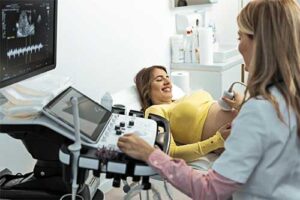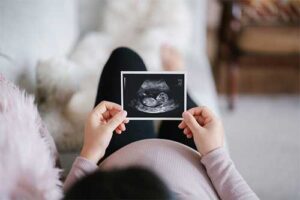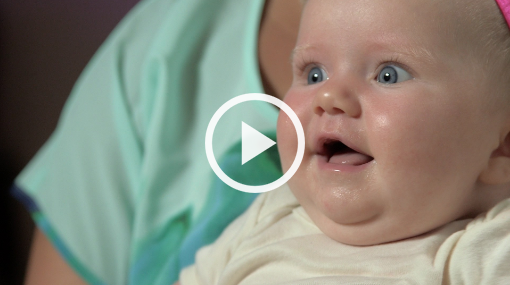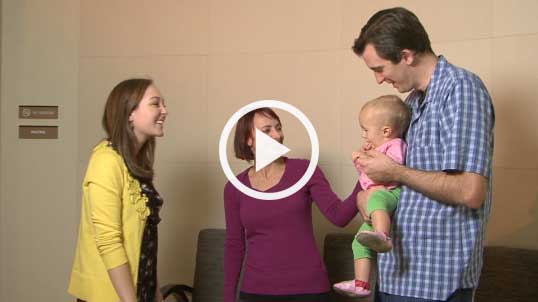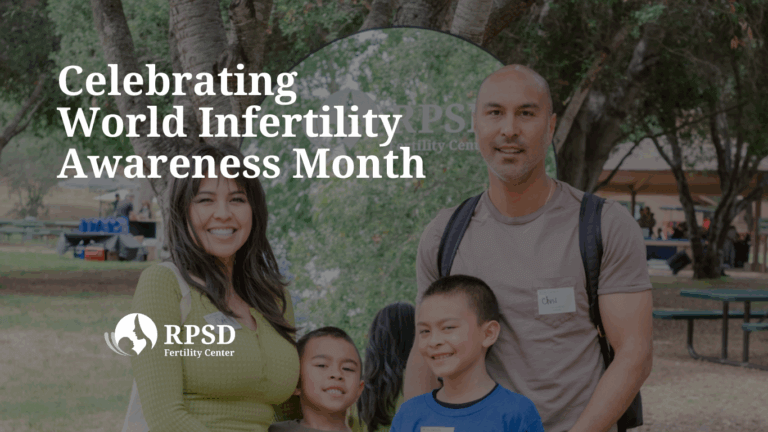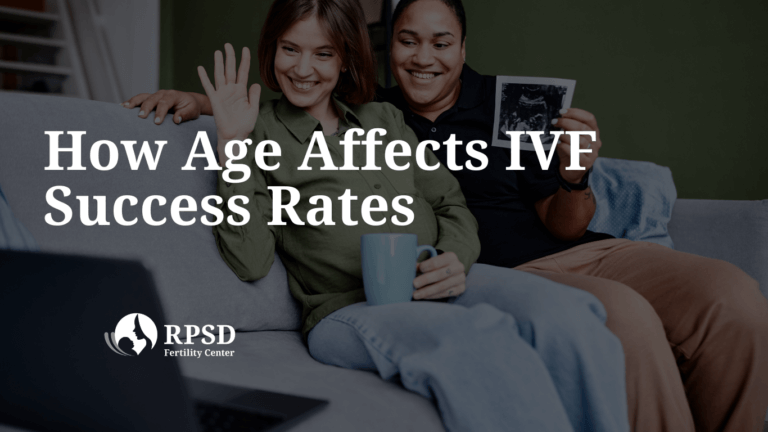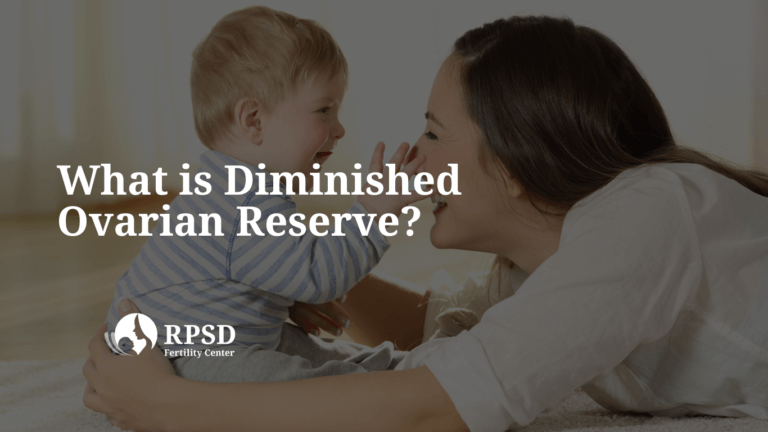The Power of Parenthood
We know it may be tough to let go of the idea of a biological connection to your child, but children born from donated eggs are every bit your children, even if they do not share your complete set of DNA. The pregnancy experience can create such a strong sense of connection to the baby that most parents cannot imagine feeling any closer — even if there was more of a genetic link. And, as with any pregnancy, you will have the privilege of knowing your baby’s every movement before the baby is born, being the first to hold them, and then spending a lifetime with a child that you created and brought into the world.

When Egg Donation Is the Best Course of Action
Egg quality plays a significant role in fertility. Unfortunately, the quality of a woman’s eggs declines with age, particularly after age 35, which may make it more difficult to conceive. Luckily, donor eggs keep open the possibility of pregnancy.
There are several reasons your doctor may suggest using a donor egg:
- If you have a diminished ovarian reserve (low number and/or quality of eggs)
- If you have undergone premature menopause
- If you have undergone multiple failed in vitro fertilization (IVF) cycles, particularly with poor embryo quality
What to Expect When Pursuing Egg Donation
At RPSD, we understand that the journey to starting a family can be a unique and personal experience. That’s why we offer a variety of options when it comes to selecting an egg donor. Egg donors can be either anonymous (“non-directed”/ “non-identified”) or known (“directed”).
Non-Identified (Anonymous) Egg Donation
You can select an egg from a non-identified (anonymous) donor from a frozen donor egg bank or an egg donor agency.
- A donor egg bank is a repository of frozen eggs from screened anonymous donors. Once you’ve chosen the donated frozen eggs, you’ll work with the donor egg bank to purchase around 6-8 frozen eggs. We handle the coordination of shipping the eggs to our laboratory, then we manage the rest of the procedure, including warming and fertilizing the egg, culturing the embryos, pre-implantation genetic testing, etc.
- An egg donor agency is an organization that matches egg donors with intended parents. Egg donors selected through an agency complete all screening, ovarian stimulation monitoring, and egg retrieval at our center.
Directed (Known) Egg Donation
If you plan to choose a directed (known) egg donor, such as a friend or family member, they will be screened by our team to ensure they are suitable for egg donation. Known egg donors complete all ovarian stimulation, monitoring and egg retrieval at our center.
Using a directed (known) egg donor can offer more control over the donor selection process, as you already have a personal relationship with the donor. However, it’s important to remember that using a known egg donor can raise legal, emotional, and practical considerations. For example, a legal contract between the egg donor and donor egg recipient(s) is required to clearly outline expectations and responsibilities. Additionally, using a known egg donor may also impact the emotional dynamics of the donor relationship and can have long-term implications for everyone involved. A professional psychological evaluation of both the egg donor and donor egg recipient(s) is required.
Selecting Your Egg Donor
Choosing an egg donor is a personal and important decision and we, at RPSD, understand the importance of finding the right match. There are several factors to consider when selecting an egg donor, including physical characteristics, education, and personal and family medical history. The donor agency or frozen donor egg bank will provide you access to a database of egg donors where you can review detailed profiles, including pictures, personal descriptions, and medical information.

Screening Egg Donors
Screening an egg donor is an important step in the egg donation process to identify any potential health or emotional risks that may affect the success of the egg donation or the health of any resulting pregnancy.
The screening process typically includes a comprehensive medical and psychological evaluation of the donor. This includes a thorough medical history, physical examination, genetic testing, and infectious disease screening. Additionally, the egg donor is also evaluated for any emotional or psychological factors that could impact their ability to donate.
Donor egg banks are responsible for ensuring all donors are thoroughly screened. If using an egg donor selected through an egg donor agency or if using a directed (known) egg donor, the medical screening is performed by one of our physicians.
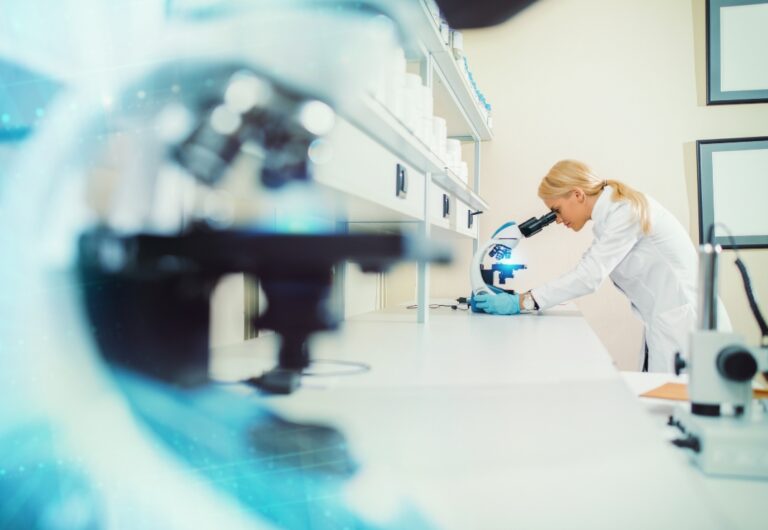
Success Rates
Egg and Sperm Donation Can Increase Your Chances of Success
The chances of a woman getting pregnant using embryos created from donor eggs are more than 50%. If male factor infertility is the main cause of a couple’s inability to get pregnant, the use of donor sperm also significantly boosts success.
Let’s Take the Next Step Together
Our skilled fertility specialists are here to help. Contact us today and let’s discuss the next phase of your fertility journey.


